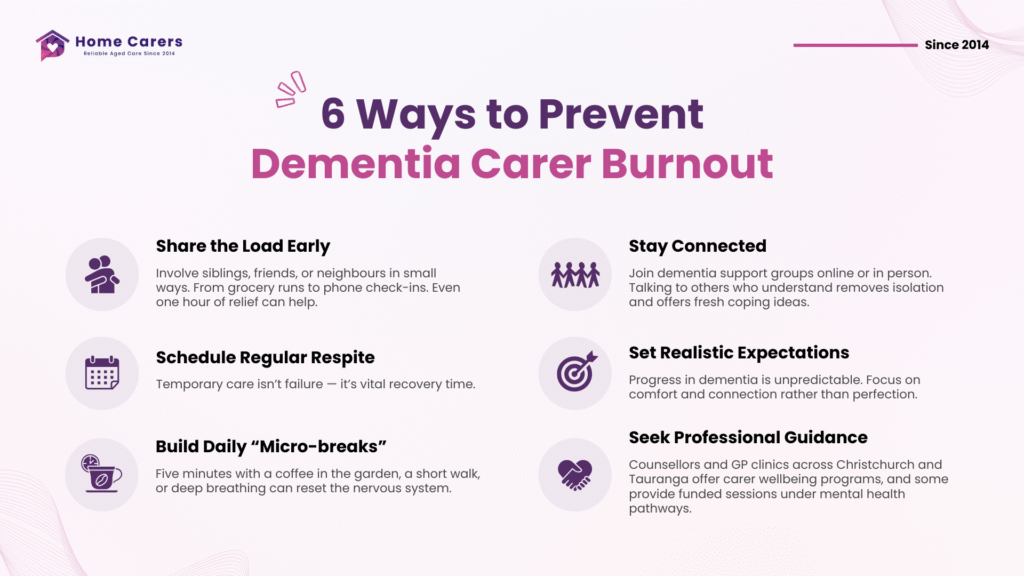Caring for a loved one with dementia can be one of life’s most meaningful responsibilities — and one of the most exhausting. Families in Christchurch and Tauranga often pour their hearts into keeping Mum or Dad safe at home, but over time, emotional and physical fatigue can take hold.
Burnout doesn’t happen overnight. It builds quietly through sleepless nights, constant vigilance, and the emotional toll of watching someone you love change. Recognising the signs early — and seeking help before you reach breaking point — can protect both the carer and the person receiving care.
Recognising the Signs of Carer Burnout
Burnout can affect anyone providing ongoing dementia support, whether it’s a spouse, adult child, or professional caregiver.
Common warning signs include:
- Constant tiredness, even after rest
- Feeling irritable, withdrawn, or tearful
- Neglecting personal health or hobbies
- Trouble sleeping or concentrating
- Resentment or guilt about the caring role
- Increased anxiety or feelings of hopelessness
If several of these feel familiar, it’s time to pause and reassess.
Why Carers Need to Care for Themselves?

Many family carers feel guilty taking breaks, believing they should always be available. But caring well means staying well. Without rest and support, carers risk physical illness, emotional burnout, and reduced ability to provide safe, patient care.
Research by Carers NZ highlights that consistent breaks, open communication, and emotional support are key to maintaining carer resilience. Think of self-care not as indulgence, but as maintenance — for your wellbeing and your loved one’s stability.
Practical Strategies to Prevent Burnout


Real Story: From Exhaustion to Balance
After two years caring for her mother at home, Rachel from Christchurch found herself anxious and overwhelmed. A short respite stay arranged through Home Carers allowed her to rest, reconnect with friends, and sleep properly for the first time in months.
She later said, “I thought taking a break meant I was giving up, but it actually gave me the strength to keep going.”
Small pauses often restore the strength needed for the long road ahead.
You Deserve Care Too
Behind every person with dementia stands a carer who gives so much. Your wellbeing is just as important. With the right mix of support, planning, and compassion for yourself, burnout can be prevented — and joy can return to the caring journey.
Visit all services to explore flexible options that suit your family’s rhythm or contact us today to discuss a personalised plan.
